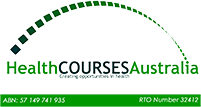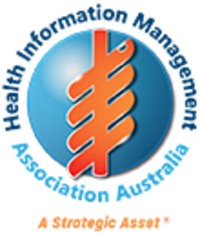
Popular courses in Gold Coast
Diploma of Leadership and Management
- There are no mandated entry requirements.






Certificate IV in Business
- There are no mandated entry requirements.




Certificate III in Business
- There are no mandated entry requirements.



Diploma of Business
- There are no mandated entry requirements.




Diploma of Practice Management
- There are no mandated entry requirements.




Diploma of Quality Auditing
- There are no mandated entry requirements.


Certificate III in Business (Administration)
- There are no mandated entry requirements.


Certificate III in Health Administration
- There are no mandated entry requirements.
 Foundation Education
Foundation Education
Certificate III in Dental Assisting
- There are no mandated entry requirements.


Certificate III in Business (Medical Administration)
- There are no mandated entry requirements.
 Foundation Education
Foundation Education
Certificate IV in Health Administration
- There are no mandated entry requirements.


Diploma of Business (Compliance)
- There are no mandated entry requirements.


Certificate III in Allied Health Assistance
- There are no mandated entry requirements.
 Foundation Education
Foundation Education
Advanced Diploma of Community Sector Management
- There are no mandated entry requirements.
 Upskilled
Upskilled
Diploma of Business (Records and Information Management) (Specialising in Health Administration)
- There are no mandated entry requirements.
 College for Adult Learning
College for Adult Learning
Certificate II in Health Support Services (Health Administration)
- There are no mandated entry requirements.
 DIVTEC Training and Further Education
DIVTEC Training and Further Education
Diploma of Leadership in Healthcare Practice
- There are no mandated entry requirements.
 UNE Partnerships
UNE Partnerships
Diploma of Clinical Coding
- There are no mandated entry requirements.




Bachelor of Health Science
- There are no mandated entry requirements.




Bachelor of Nursing
- There are no mandated entry requirements.








Frequently Asked Questions
Yes, there are course providers who offer 20 qualification(s) in Gold Coast. Find a course provider near you. Once you make an enquiry, a course advisor will get in touch to discuss your study options and course fees.
Written by Courses.com.au Team
There are several campuses within the Gold Coast area that provide medical administration training. The nearest campus is located right in the center of Gold Coast. You can also study a medical administration course through online, distance or traineeship learning. Find a course provider that best suits your needs.
Written by Courses.com.au Team
Potential job roles within medical administration includes patient liaison officer, dental receptionist or practice manager (to name a few). Browse related occupations to find a career that suits your needs.
Written by Courses.com.au Team
Further reading


Certificate III in Pathology Collection: Everything You Need to Know
10th February 2025)
